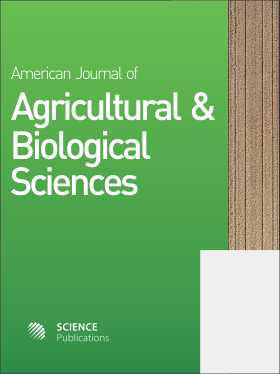Susceptibility of Mango Varieties to Anthracnose Fruit Rot in South West Nigeria
- 1 Department of Crop Production, Olabisi Onabanjo University, Ayetoro Campus, Ogun State, Nigeria
Abstract
Anthracnose fruit rot is the most devastating postharvest disease of mango fruits in Nigeria. This study, investigated the susceptibility of mango varieties commonly grown in South West Nigeria to fruit anthracnose. Four locations (Ayetoro, Ibadan, Ogbomosho and Agege) in South west Nigeria, which fall along mango production belt, were selected for this study. Physiologically matured mango fruits freshly harvested separately from Alphonso, Julie and Ogbomosho varieties were ripened at room temperature for 16 days under alternating 12 h light and dark periods to assess the incidence and severity of fruit anthracnose in each variety. In addition, freshly harvested healthy fruits were deliberately inoculated with spores of Colletotrichum gloeosporioides to evaluate the degree of susceptibility of the tested varieties. Results showed that Ogbomosho variety had the lowest percentage of 66.7% disease incidence and 44% disease severity. Similarly, lesion diameter was highest in Alphonso variety (1.18 cm) with the least (0.91 cm) in Ogbomosho variety. The study found Ogbomosho variety less susceptible to anthracnose and consequently recommended it to farmers.
DOI: https://doi.org/10.3844/ajabssp.2017.95.99

- 7,305 Views
- 6,307 Downloads
- 1 Citations
Download
Keywords
- Anthracnose
- Colletotrichum gloeosporioides
- Mango Varieties
- Susceptibility
- Investigated
